
Zenica: The Heart of Bosnia and Herzegovina
Zenica, a city nestled in the picturesque Bosnian valley, offers a unique blend of history, culture, and natural beauty. As the fourth largest city in Bosnia and Herzegovina, Zenica is known for its rich industrial heritage and vibrant community life. The city sits along the banks of the Bosna River, surrounded by lush green hills that provide a serene backdrop to its urban landscape. A walk through Zenica reveals a tapestry of historical influences, from Ottoman-era mosques to remnants of Austro-Hungarian architecture. The city center is a bustling hub, where modern cafes and shops mingle with traditional markets. One of the must-visit sites is the Vranduk Fortress, perched on a hill overlooking the city. This medieval fortress offers panoramic views and a glimpse into Zenica's storied past. Nature enthusiasts will find plenty to explore in Zenica's surroundings. The nearby Smetovi mountain range is a popular destination for hiking and outdoor activities. In the winter, it transforms into a snowy wonderland perfect for skiing and snowboarding. The city's parks and riverside promenades provide peaceful retreats for leisurely walks and picnics. Zenica's culinary scene is a delightful mix of traditional Bosnian dishes and contemporary flavors. Local eateries serve up hearty meals like cevapi, burek, and delicious sweets like baklava. The city's vibrant cultural calendar features festivals, concerts, and art exhibitions that give visitors a taste of local life and traditions. Whether you're a history buff, nature lover, or culture seeker, Zenica offers a warm welcome and a rich array of experiences.
Local tips in Zenica
- Visit the Vranduk Fortress for stunning views and historical insights.
- Explore the local markets in the city center for unique souvenirs and fresh produce.
- Take a hike in the Smetovi mountain range for breathtaking scenery and outdoor activities.
- Try traditional Bosnian dishes at local eateries to get a taste of authentic flavors.
- Check out the cultural events calendar to experience local festivals and concerts.
Zenica: The Heart of Bosnia and Herzegovina
Zenica, a city nestled in the picturesque Bosnian valley, offers a unique blend of history, culture, and natural beauty. As the fourth largest city in Bosnia and Herzegovina, Zenica is known for its rich industrial heritage and vibrant community life. The city sits along the banks of the Bosna River, surrounded by lush green hills that provide a serene backdrop to its urban landscape. A walk through Zenica reveals a tapestry of historical influences, from Ottoman-era mosques to remnants of Austro-Hungarian architecture. The city center is a bustling hub, where modern cafes and shops mingle with traditional markets. One of the must-visit sites is the Vranduk Fortress, perched on a hill overlooking the city. This medieval fortress offers panoramic views and a glimpse into Zenica's storied past. Nature enthusiasts will find plenty to explore in Zenica's surroundings. The nearby Smetovi mountain range is a popular destination for hiking and outdoor activities. In the winter, it transforms into a snowy wonderland perfect for skiing and snowboarding. The city's parks and riverside promenades provide peaceful retreats for leisurely walks and picnics. Zenica's culinary scene is a delightful mix of traditional Bosnian dishes and contemporary flavors. Local eateries serve up hearty meals like cevapi, burek, and delicious sweets like baklava. The city's vibrant cultural calendar features festivals, concerts, and art exhibitions that give visitors a taste of local life and traditions. Whether you're a history buff, nature lover, or culture seeker, Zenica offers a warm welcome and a rich array of experiences.
When is the best time to go to Zenica?
Unmissable attractions to see
Tunnel Ravne Bosna
Discover the ancient secrets of Tunnel Ravne Bosna, an enchanting archaeological site in Kakanjska, Bosnia, surrounded by stunning natural beauty.
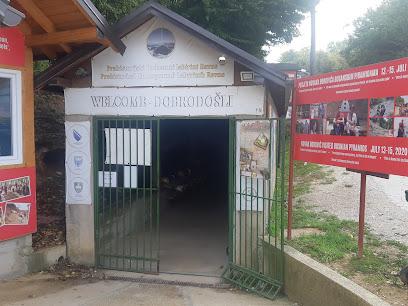
Bosnian Pyramid of the Sun
Explore the enigmatic Bosnian Pyramid of the Sun in Visoko, a stunning tourist attraction blending history, nature, and cultural richness.
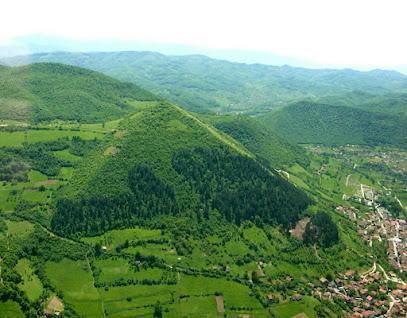
Bijambare
Explore Bijambare Nature Preserve, a breathtaking oasis of natural beauty, caves, and diverse wildlife in the heart of Bosnia and Herzegovina.
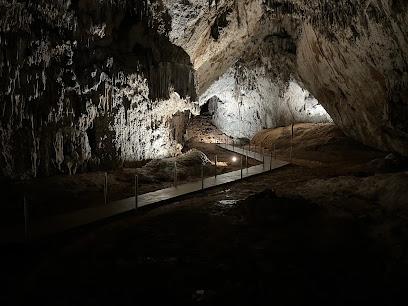
Ravne 2
Explore the lush landscapes and archaeological wonders of Ravne 2 Park, a serene escape in Visoko, Bosnia and Herzegovina.
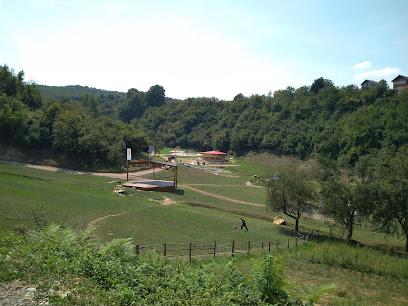
Ornamented Mosque
Explore the serene beauty and rich history of the Ornamented Mosque in Travnik, an architectural gem that reflects the region's Ottoman heritage.
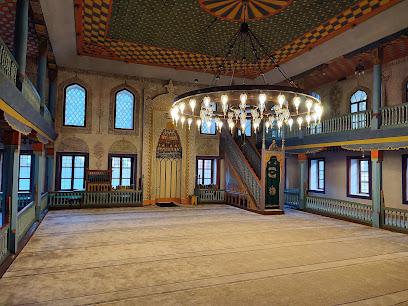
Rodna kuća Ive Andrića
Discover the profound legacy of Nobel laureate Ivo Andrić at his birthplace in Travnik, a must-visit destination for literature and history enthusiasts.
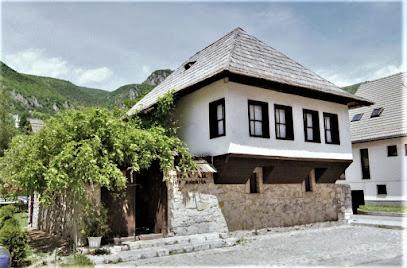
Franciscan Monastery Kraljeva Sutjeska
Discover the serene Franciscan Monastery Kraljeva Sutjeska, a historical gem surrounded by stunning landscapes and rich cultural heritage.
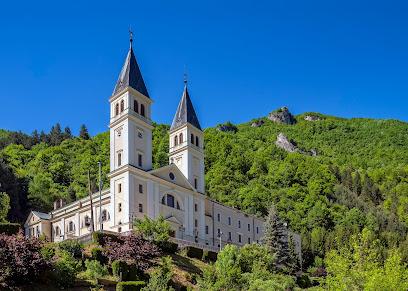
Fojnica Franciscan Monastery
Explore the rich history and serene beauty of Fojnica Franciscan Monastery, a tranquil sanctuary in the heart of Bosnia and Herzegovina.
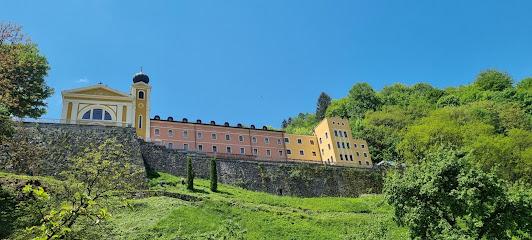
Native Museum
Discover Bosnia's cultural treasures at the Native Museum in Visoko, featuring captivating exhibits and renowned local artistry.
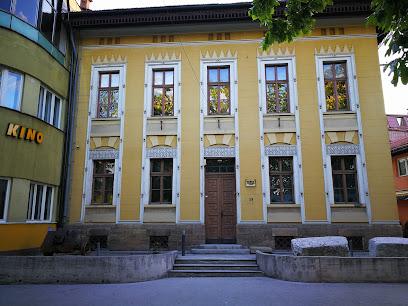
Fontana
Explore the enchanting Fontana in Zenica, a perfect blend of natural beauty and vibrant urban life, ideal for leisurely strolls and social gatherings.
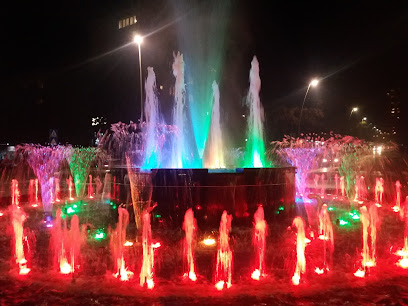
Samardžić Estate
Experience the beauty and tranquility of Samardžić Estate, a cultural heritage site in Zenica, Bosnia and Herzegovina, ideal for relaxation and exploration.
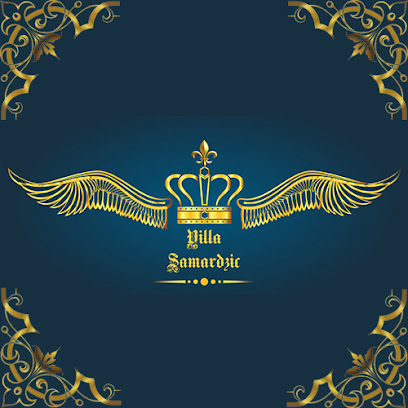
Konjska Česma
Explore the cultural heartbeat of Zenica at Konjska Česma Museum, where history, art, and tradition come alive.
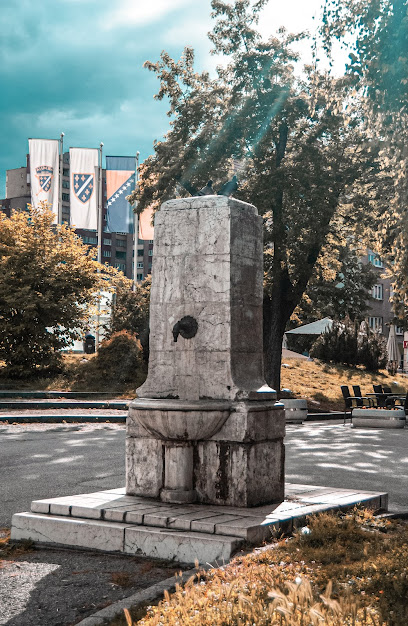
FONTANA
Explore Fontana in Zenica – a serene tourist attraction blending natural beauty with local culture for a memorable experience.

Petlja Zenica sjever
Explore the stunning natural beauty and rich culture of Petlja Zenica Sjever, a must-visit tourist attraction in Zenica, Bosnia and Herzegovina.
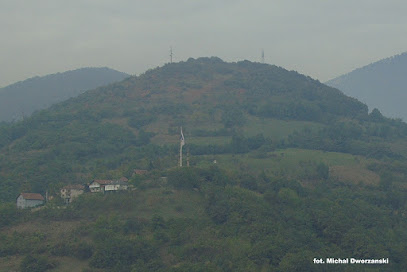
Jagnjišće
Explore the lush landscapes of Jagnjišće Park in Zenica, a perfect destination for relaxation and nature appreciation.
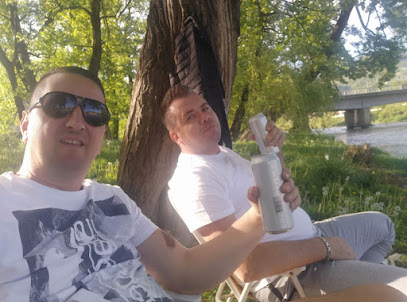
Essential places to dine
Carpe Diem
Experience authentic Bosnian cuisine at Carpe Diem Grill Restaurant in Zenica – where flavor meets tradition.
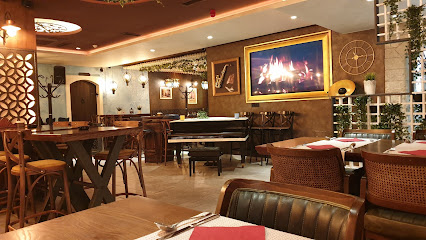
Restoran Bajra
Discover authentic Bosnian cuisine at Restoran Bajra in Zenica - where tradition meets flavor in every bite.
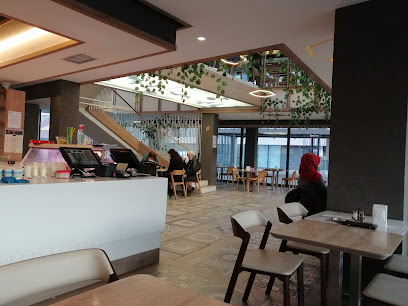
Restoran Dubrovnik
Discover the flavors of Bosnia at Restoran Dubrovnik – where tradition meets modern culinary artistry in an unforgettable dining experience.
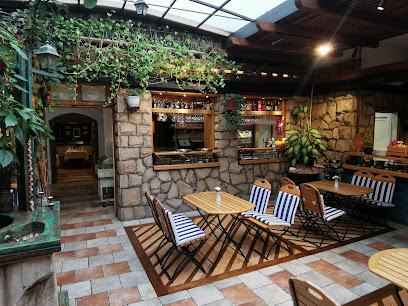
Ušće
Experience authentic Bosnian flavors at Ušće in Zenica - where culinary tradition meets modern dining in a warm atmosphere.
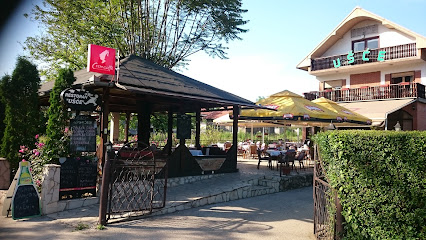
Oliv Dining & lounge bar
Discover the flavors of Bosnia at Oliv Dining & Lounge Bar in Zenica – where contemporary cuisine meets traditional hospitality.
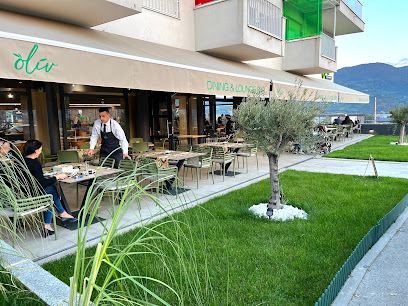
Caballo
Experience authentic Italian flavors at Caballo in Zenica – where every meal is a celebration of culinary excellence.
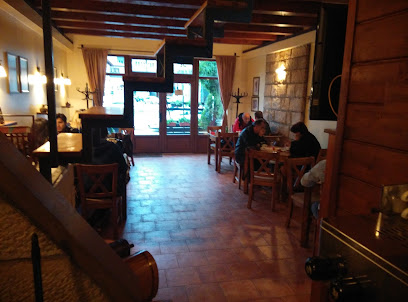
Restoran Tapas
Discover exquisite tapas and local flavors at Restoran Tapas, your go-to dining destination in Zenica.
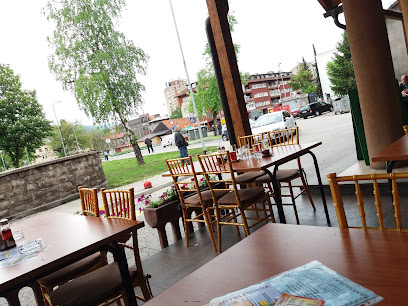
Urban Grill (2)
Discover the taste of Zenica at Urban Grill: where quality meets flavor in every bite.
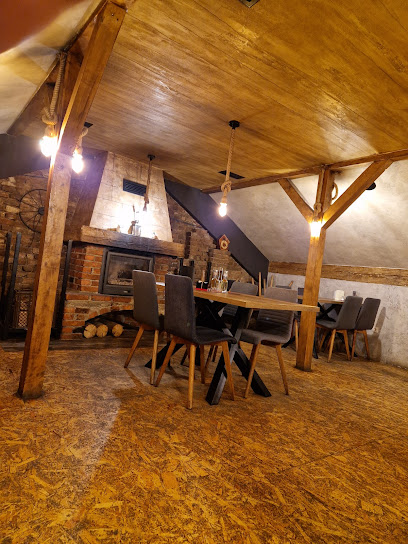
Restoran Maida Opatija
Experience authentic Bosnian cuisine at Restoran Maida Opatija in Zenica - where flavors meet hospitality.
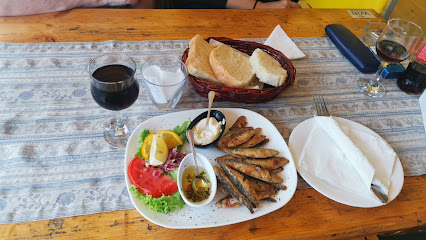
Dolce Vita
Indulge in authentic Bosnian cuisine at Dolce Vita, where every dish tells a story and every meal is a celebration of flavors.
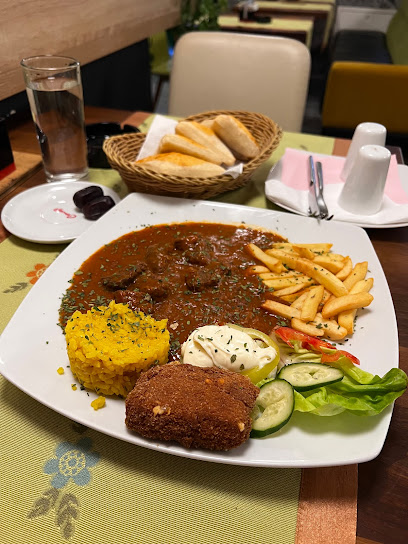
Restaurant exEMPORIO
Experience the flavors of Bosnia at Restaurant exEMPORIO in Zenica – where tradition meets contemporary dining.
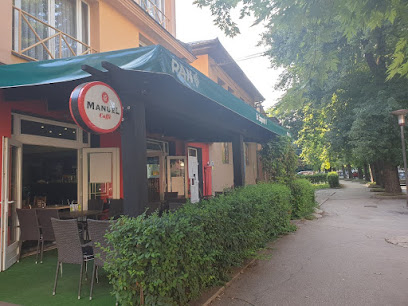
Restoran Brkić
Discover the authentic flavors of Bosnia at Restoran Brkić in Zenica – where tradition meets modern dining.
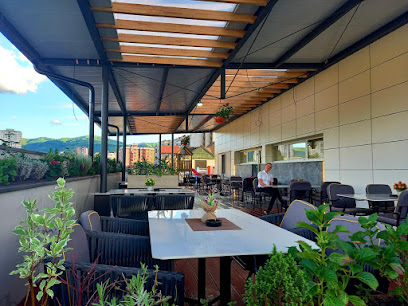
Cafe Restoran Author
Discover the flavors of Bosnia at Cafe Restoran Author in Zenica - where tradition meets taste in every dish.
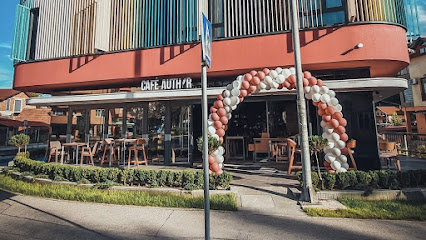
Astoria Pancakes and Pizza
Discover the delightful flavors of Astoria Pancakes and Pizza in Zenica - where family-friendly dining meets delicious cuisine.
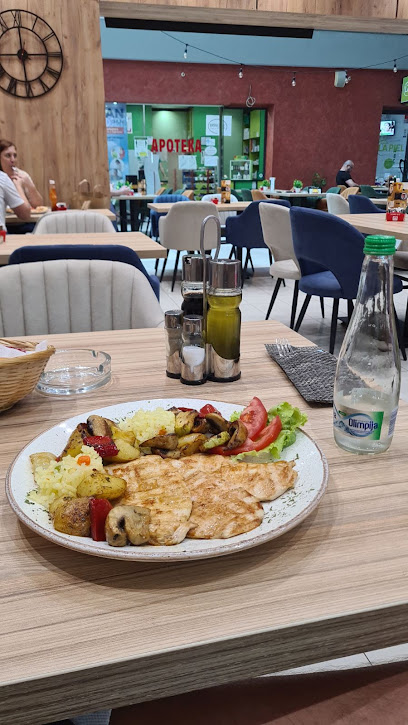
Pepe Nero Zenica
Experience the vibrant flavors of Zenica at Pepe Nero, where gastropub meets fast food in a cozy atmosphere.
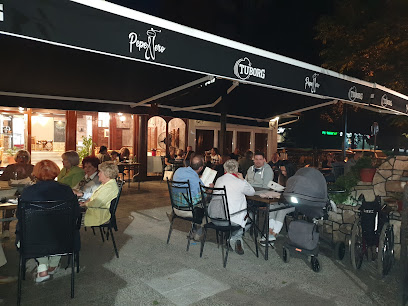
Markets, malls and hidden boutiques
Shopping City
Explore Shopping City in Zenica – a vibrant shopping mall offering diverse retail, dining, and entertainment experiences for every traveler.
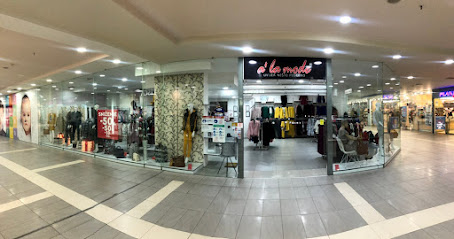
Shopping mall Bosanka
Discover the best of shopping and leisure at Shopping Mall Bosanka, Zenica's premier retail destination featuring diverse shops and dining options.
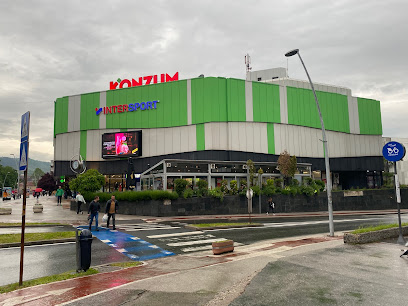
LC WAIKIKI
Explore stylish and affordable fashion at LC Waikiki in Zenica, a premier clothing destination for all ages.
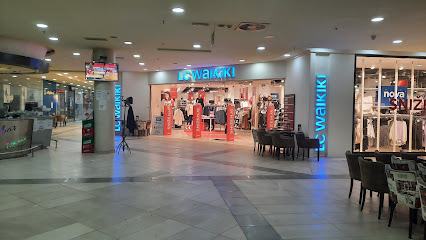
Shopping mall Zeničanka
Experience the vibrant shopping and dining culture at Zeničanka Shopping Mall, the heart of Zenica's retail scene.
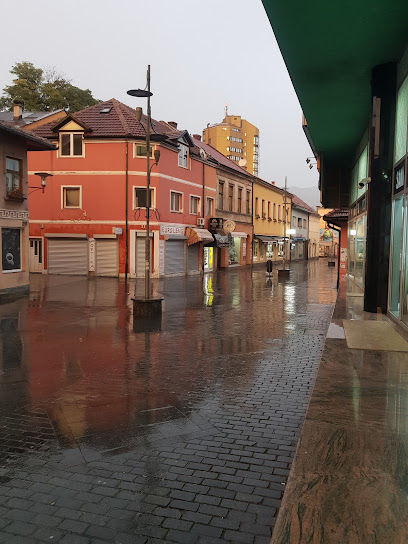
Fedi Zenica - maloprodaja
Explore Fedi Zenica, the ultimate craft store in Zenica, Bosnia, where creativity thrives and crafting dreams come to life.
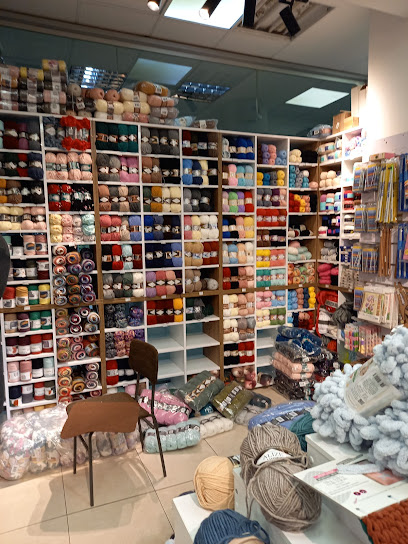
Mars 97 Zenica
Explore Mars 97 in Zenica for a unique shopping experience filled with local home goods and delightful finds.
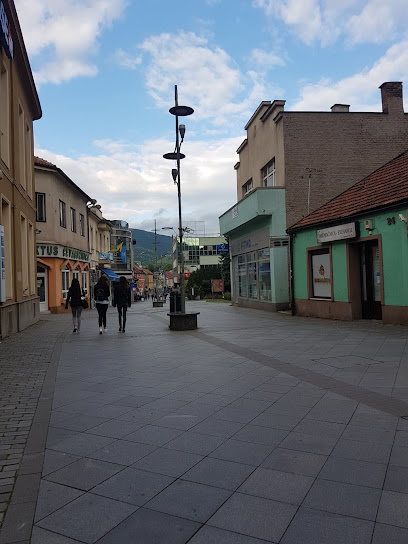
Bellona Zenica
Discover exquisite furniture accessories at Bellona Zenica, where local craftsmanship meets modern design for your home decor needs.
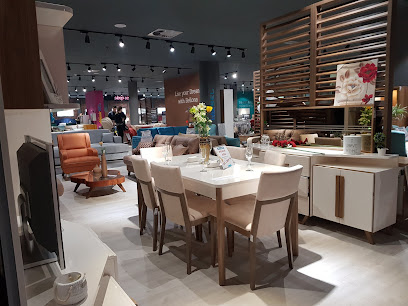
Tehno Mag
Discover the latest in electronics at Tehno Mag, Zenica's premier destination for tech enthusiasts and gadget lovers.
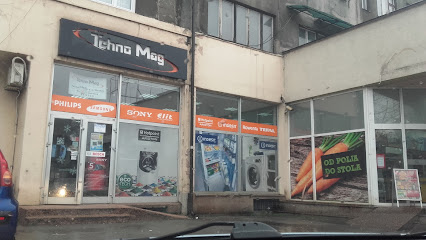
Sport Vision
Discover top-quality sporting goods and apparel at Sport Vision in Zenica, catering to athletes and sports enthusiasts of all levels.
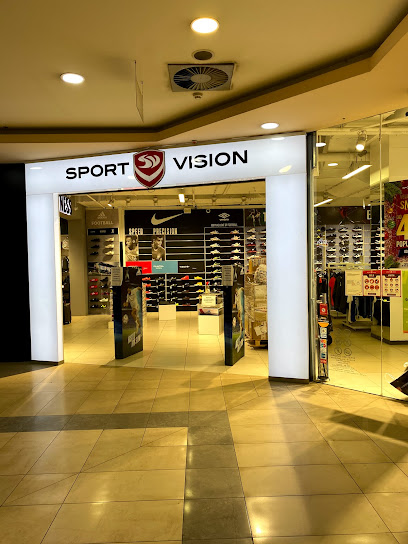
Techno Shop
Explore the cutting edge of technology at Techno Shop in Zenica, offering a vast selection of electronics and expert guidance for every tech enthusiast.
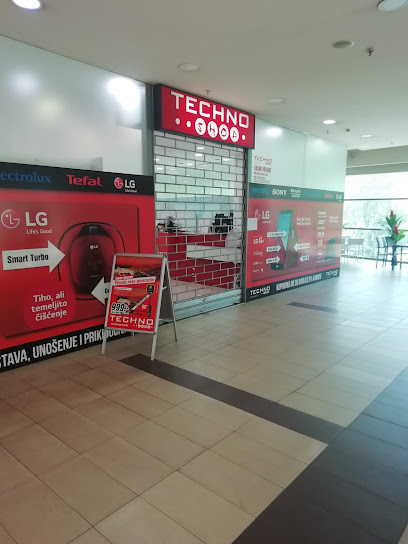
Juventa sport-Zenica
Juventa Sport in Zenica offers top-quality sports gear and apparel for enthusiasts of all levels, right in the heart of Bosnia.
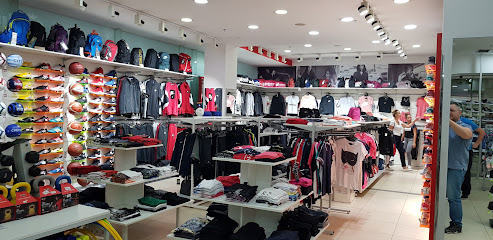
EDO Prom
Discover local flavors and fresh produce at EDO Prom, Zenica's go-to grocery store for tourists and locals alike.
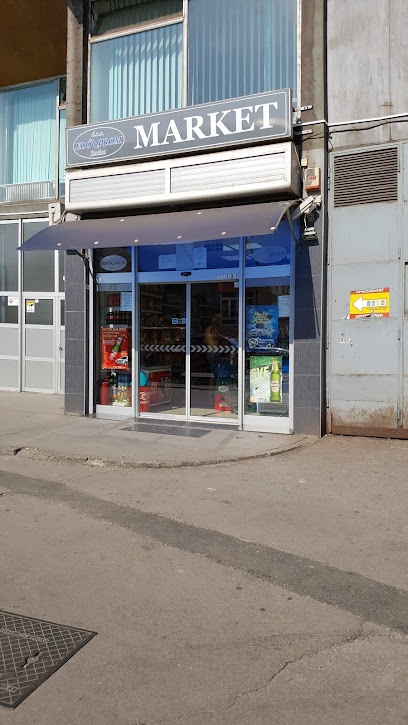
Sehara Hidžab Shop
Explore the Sehara Hidžab Shop in Zenica for a unique blend of traditional and modern modest fashion, showcasing local craftsmanship and style.
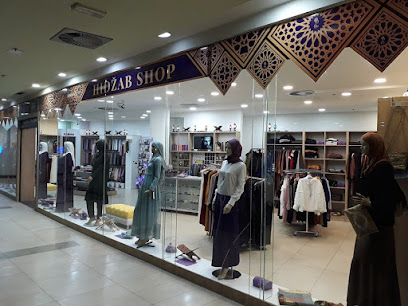
Umbrella Vape Shop - Elektronske Cigarete Zenica
Explore the best vaping experience at Umbrella Vape Shop in Zenica, offering a wide range of e-cigarettes and exceptional customer service.
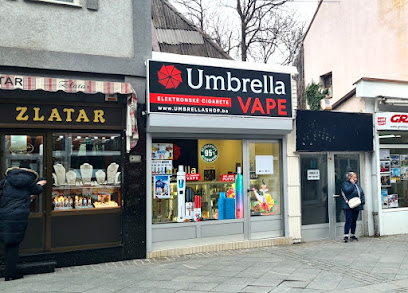
Top Shop
Explore Top Shop in Zenica for unique fashion and local treasures at moderate prices, perfect for tourists seeking memorable souvenirs.
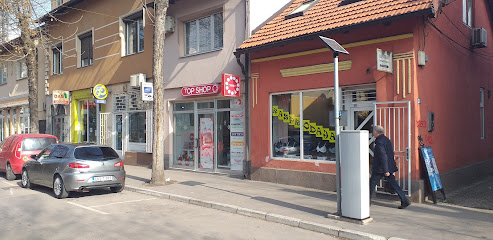
Essential bars & hidden hideouts
Carpe Diem
Explore the vibrant flavors of Carpe Diem, Zenica's premier grill restaurant, offering a delightful menu in a lively atmosphere.
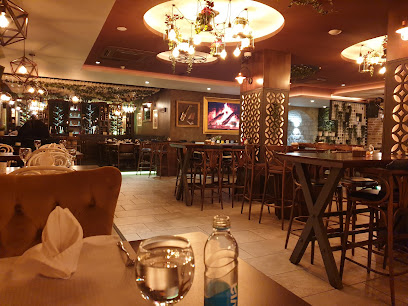
Caffe Bar Šibica
Enjoy a lively atmosphere at Caffe Bar Šibica in Zenica, where local culture meets delightful drinks and friendly service.
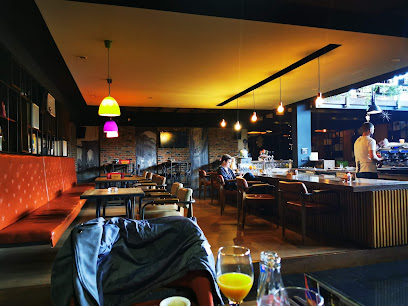
Avanti
Experience the vibrant flavors of Zenica at Avanti, a top brewpub offering craft beers and delicious meals in a lively atmosphere.
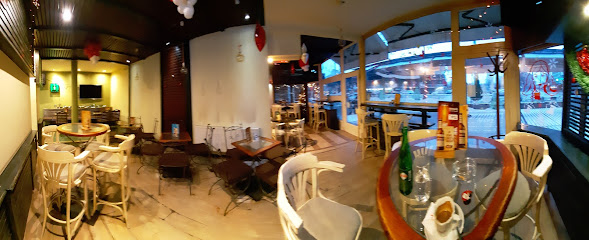
Stari Sat
Discover Zenica's nightlife at Stari Sat Bar - a hub of local culture, drinks, and vibrant atmosphere in the heart of the city.
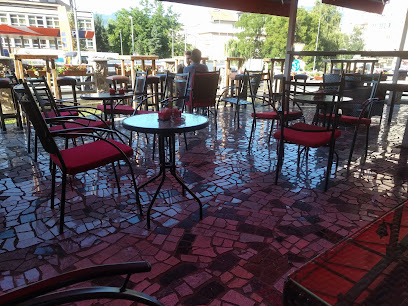
Caffe Passage
Experience the warmth of Bosnian hospitality at Caffe Passage, a cozy bar in Zenica offering a delightful selection of beverages and a welcoming atmosphere.
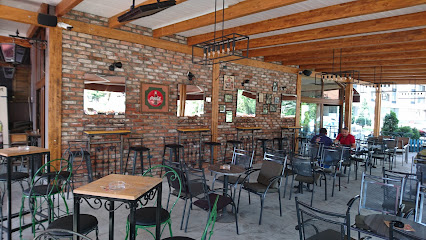
Krčma BP
Discover Krčma BP in Zenica: A vibrant bar and pub offering a taste of local flavors in a cozy and welcoming atmosphere.
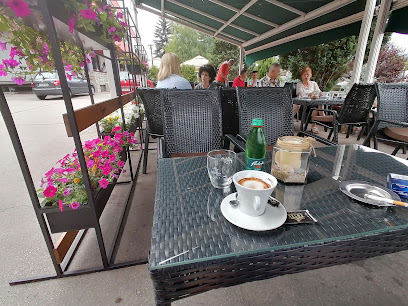
Caffe Pub
Discover the essence of Zenica at Caffe Pub, a cozy bar offering delightful drinks and a warm ambiance for all visitors.
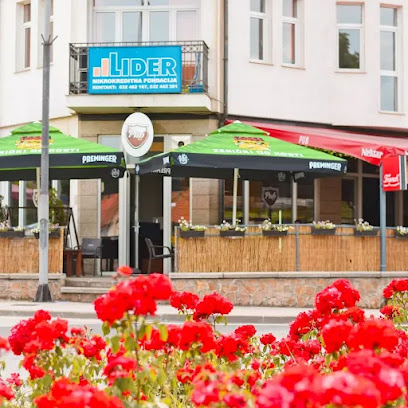
Caffe Retro
Experience the lively atmosphere and local flavors at Caffe Retro, Zenica's go-to bar for tourists and locals alike.
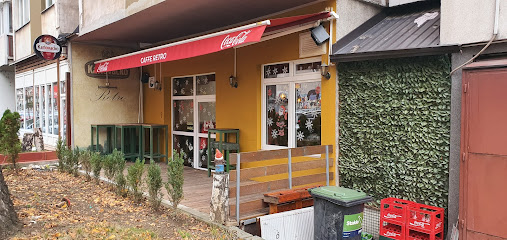
Caffe Bar Baltic
Discover the charm of Caffe Bar Baltic, where local flavors and warm hospitality await in the heart of Zenica.
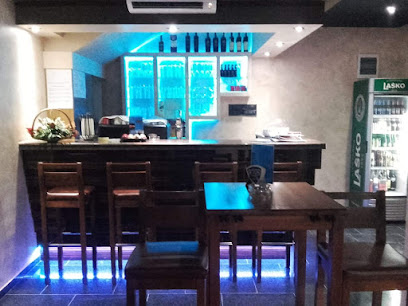
Lounge Bar Cubano
Unwind at Lounge Bar Cubano in Zenica, where vibrant nightlife meets expertly crafted cocktails in a welcoming atmosphere.
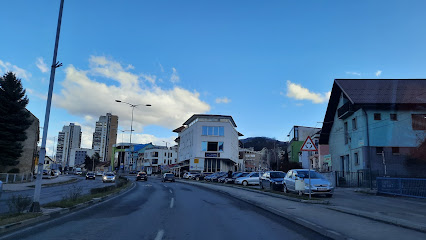
Cozy Pub Zenica
Discover the culinary delights and vibrant atmosphere at Cozy Pub Zenica, where local flavors meet great company.
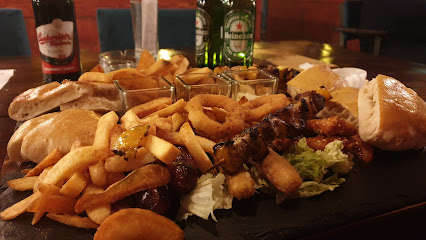
Hik 'n' Rock caffe bar-pub
Experience the vibrant nightlife of Zenica at Hik 'n' Rock Caffe Bar-Pub, where great drinks and lively music create unforgettable memories.
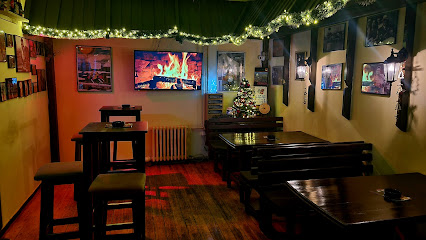
H&M Lounge Nargila bar
Discover the vibrant atmosphere and exquisite flavors of H&M Lounge Nargila Bar in Zenica, your perfect spot for relaxation and socializing.

HM LOUNGE CAFFE BAR
Discover the charm of Zenica at HM Lounge Caffe Bar, where local flavors and a cozy atmosphere invite you to relax and unwind.
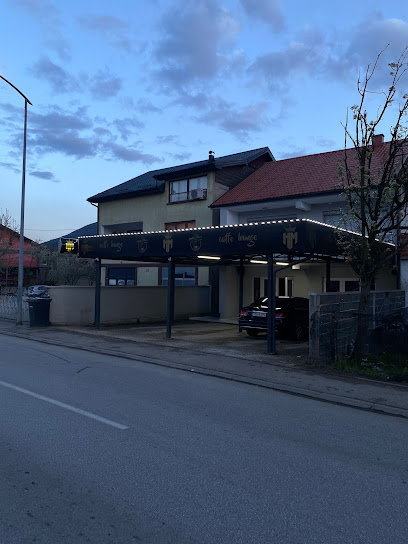
Local Phrases
-
- HelloZdravo
[Zdra-vo] - GoodbyeDoviđenja
[Do-vi-đen-ja] - YesDa
[Da] - NoNe
[Ne] - Please/You're welcomeMolim
[Mo-lim] - Thank youHvala
[Hva-la] - Excuse me/SorryIzvini
[Iz-vi-ni] - How are you?Kako si?
[Ka-ko si?] - Fine. And you?Dobro. A ti?
[Do-bro. A ti?] - Do you speak English?Govoriš li engleski?
[Go-vo-riš li en-gles-ki?] - I don't understandNe razumijem
[Ne ra-zu-mi-jem]
- HelloZdravo
-
- I'd like to see the menu, pleaseMolim vas, mogu li vidjeti meni?
[Mo-lim vas, mo-gu li vid-je-ti me-ni?] - I don't eat meatJa ne jedem meso
[Ja ne je-dem me-so] - Cheers!Živjeli!
[Živ-je-li!] - I would like to pay, pleaseMogu li platiti, molim?
[Mo-gu li pla-ti-ti, mo-lim?]
- I'd like to see the menu, pleaseMolim vas, mogu li vidjeti meni?
-
- Help!Upomoć!
[U-po-moć!] - Go away!Idi odavde!
[I-di o-da-vde!] - Call the Police!Zovite policiju!
[Zo-vi-te po-li-ci-ju!] - Call a doctor!Zovite doktora!
[Zo-vi-te dok-to-ra!] - I'm lostIzgubio/la sam se
[Iz-gu-bi-o/la sam se] - I'm illBolesno mi je
[Bo-les-no mi je]
- Help!Upomoć!
-
- I'd like to buy...Želim kupiti...
[Že-lim ku-pi-ti...] - I'm just lookingSamo gledam
[Sa-mo gle-dam] - How much is it?Koliko košta?
[Ko-li-ko kosh-ta?] - That's too expensiveTo je previše skupo
[To je pre-vi-še skup-o] - Can you lower the price?Možete li spustiti cijenu?
[Mo-že-te li spu-sti-ti ci-ju-nu?]
- I'd like to buy...Želim kupiti...
-
- What time is it?Koliko je sati?
[Ko-li-ko je sa-ti?] - It's one o'clockJedan sat je
[Je-dan sat je] - Half past (10)Pola (deset)
[Po-la (de-set)] - MorningJutro
[Ju-tro] - AfternoonPopodne
[Po-po-dne] - EveningVeče
[Ve-če] - YesterdayJučer
[Ju-čer] - TodayDanas
[Da-nas] - TomorrowSutra
[Su-tra] - 1Jedan
[Je-dan] - 2Dva
[Dva] - 3Tri
[Tri] - 4Četiri
[Če-ti-ri] - 5Pet
[Pet] - 6Šest
[Šest] - 7Sedam
[Se-dam] - 8Osam
[O-sam] - 9Devet
[De-vet] - 10Deset
[De-set]
- What time is it?Koliko je sati?
-
- Where's a/the...?Gdje je...
[Gdje je...] - What's the address?Koja je adresa?
[Ko-ja je a-dre-sa?] - Can you show me (on the map)?Možete li mi pokazati (na karti)?
[Mo-že-te li mi po-ka-za-ti (na kar-ti)?] - When's the next (bus)?Kada je sljedeći (autobus)?
[Ka-da je slje-de-ći (au-to-bus)?] - A ticket (to ....)Jedna karta (za ...)
[Je-dna kar-ta (za ...)]
- Where's a/the...?Gdje je...
History of Zenica
-
The history of Zenica dates back to ancient times when it was first settled by the Illyrians. The area became an important part of the Roman Empire, serving as a pivotal point along the Roman road network. Roman artifacts and remnants of architecture can still be found in and around Zenica, offering a glimpse into its ancient past.
-
During the medieval period, Zenica was part of the Bosnian Kingdom. In the 15th century, it came under Ottoman rule, which significantly influenced the city's culture, architecture, and demographics. The Ottomans introduced Islam to the region and built many iconic structures, such as mosques and bridges, some of which still stand today.
-
Zenica experienced substantial development during the Austro-Hungarian rule from 1878 to 1918. The Austro-Hungarians introduced modern infrastructure, including railways, schools, and hospitals, which contributed to the city's growth. This period also saw the establishment of the Zenica Ironworks, which became a key driver of the local economy.
-
Zenica, like the rest of Bosnia and Herzegovina, endured significant hardships during World War II. The city was occupied by Axis forces and later liberated by Partisan resistance fighters. The post-war period was marked by extensive rebuilding efforts and industrial expansion, particularly in the steel and mining sectors.
-
Zenica was heavily affected by the Bosnian War (1992-1995), suffering from economic disruption and damage to infrastructure. The war left deep scars on the community, but the city has since been working towards recovery and reconciliation. Efforts have been made to repair and modernize the city's facilities and to promote cultural and economic revival.
-
Today, Zenica is a vibrant city with a diverse cultural heritage. It hosts numerous cultural events, including music and theatre festivals, and boasts several museums and galleries. The city is also home to the University of Zenica, which plays a crucial role in education and research. Despite its industrial roots, Zenica is surrounded by natural beauty, offering various outdoor recreational activities.
Zenica Essentials
-
Zenica is located in central Bosnia and Herzegovina. The nearest international airport is Sarajevo International Airport, approximately 70 kilometers southeast of Zenica. From Sarajevo, you can take a bus or a train to Zenica, both of which offer scenic routes through the Bosnian countryside. The journey typically takes around 1.5 to 2 hours by road or rail.
-
Zenica has a well-organized public transportation system, including buses and taxis. Buses are an affordable way to get around the city, with routes covering most areas. Taxis are also readily available and relatively inexpensive. For those who prefer more flexibility, renting a car is an option, although parking can sometimes be challenging in the city center. Walking and cycling are also popular ways to explore the city.
-
The official currency in Bosnia and Herzegovina is the Bosnian Convertible Mark (BAM). Credit and debit cards are widely accepted in hotels, restaurants, and larger shops. However, it is advisable to carry some cash, especially when visiting smaller establishments or markets. ATMs are plentiful throughout Zenica, making it easy to withdraw cash if needed.
-
Zenica is generally a safe city for tourists. However, like any urban area, it is important to take standard safety precautions. Avoid walking alone late at night in poorly lit areas and keep an eye on your personal belongings, especially in crowded places like markets and public transport. While there are no specific high-crime areas targeting tourists, always remain vigilant and aware of your surroundings.
-
In case of emergency, dial 112 for immediate assistance, which is the general emergency number in Bosnia and Herzegovina. Zenica has well-equipped police stations, hospitals, and medical facilities. It is recommended to have travel insurance that covers medical emergencies. Pharmacies are widely available for minor health issues, and many staff members speak English.
-
Fashion: Do dress modestly, especially when visiting religious sites. Avoid overly revealing clothing. Religion: Do respect local customs and traditions. When visiting mosques or churches, women should cover their heads, and everyone should remove their shoes. Public Transport: Do be courteous and offer your seat to elderly passengers. Don’t eat or drink on public transport. Greetings: Do greet people with a handshake and a smile. In more formal settings, a slight bow of the head can be a sign of respect. Eating & Drinking: Do try local dishes and accept food offerings graciously. Don’t refuse hospitality, as it is considered impolite.
-
To experience Zenica like a local, visit the lively local markets such as Gradska Tržnica, where you can buy fresh produce and traditional Bosnian goods. Engage with locals, who are known for their hospitality and willingness to share stories about their city. Don’t miss visiting the Vranduk Fortress for a glimpse into the region's medieval history. For a unique experience, take a leisurely stroll along the Bosna River promenade or hike in the nearby mountains for breathtaking views.
Nearby Cities to Zenica
-
Things To Do in Jajce
-
Things To Do in Sarajevo
-
Things To Do in Tuzla
-
Things To Do in Banja Luka
-
Things To Do in Mostar
-
Things To Do in Makarska
-
Things To Do in Split
-
Things To Do in Trogir
-
Things To Do in Hvar
-
Things To Do in Trebinje
-
Things To Do in Dubrovnik
-
Things To Do in Bihac
-
Things To Do in Nikšić
-
Things To Do in Novi Sad
-
Things To Do in Herceg Novi









